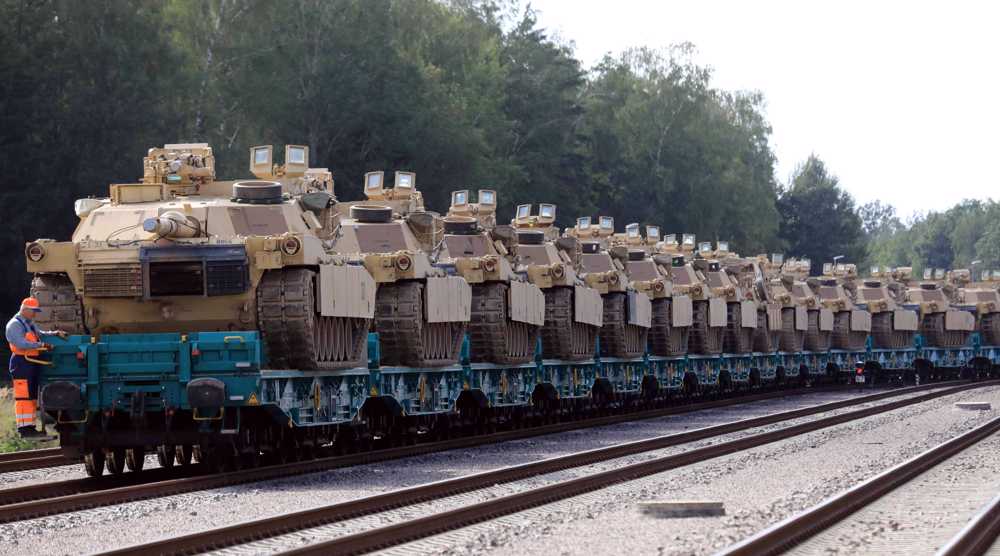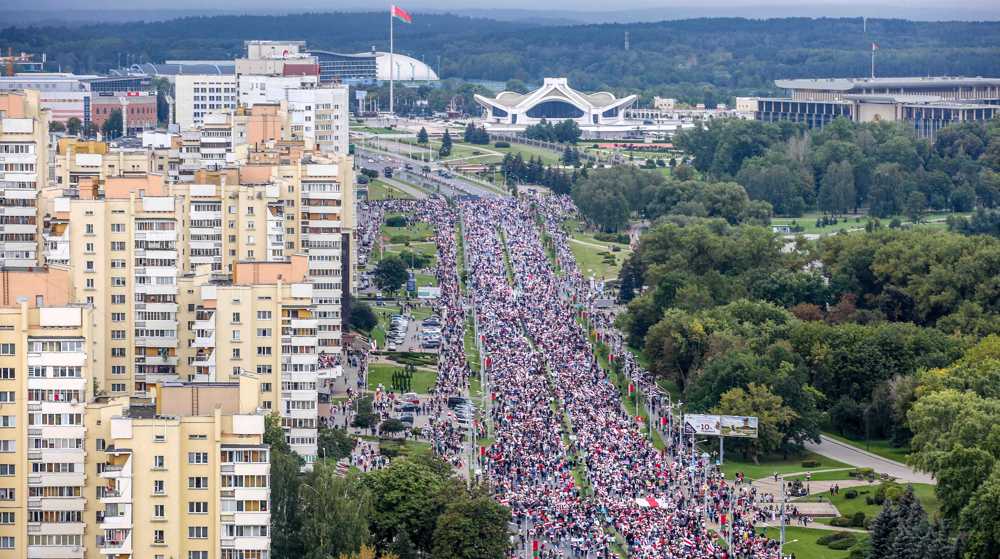Belarus scene of fresh protests on eve of Lukashenko's Russia visit
The situation remains tense in Belarus, which has been the scene of protest rallies by supporters of opposition, who refuse to accept the official results of last month’s presidential election in the East European country.
The capital Minsk and several other cities saw fresh anti-government protests on Sunday, as tens of thousands of people poured out into the streets to voice their objection to the results of the August presidential polls, which Alexander Lukashenko won with 80 percent of the vote.
Belarusian police intervened when protesters in the capital tried to make their way into the elite residential area, where top government officials, including President Lukashenko, reside.
Interior Ministry Spokeswoman Olga Chemodanova confirmed that hundreds of people had been arrested across the capital on Sunday.
The detainees were carrying flags and placards "of an insulting nature," she explained.
She also confirmed reports that a police officer had fired a warning shot into the air to ward off protesters.
“As policemen were taking several protest activists into custody in downtown Minsk, other demonstrators, at least 100 of them, tried to prevent the arrests,” Chemodanova said. “A warning shot was fired from a slide-action gun into the air to stop the unlawful action.”
Reporting on Monday, the Belarusian Interior Ministry put the number of people arrested during Sunday's protests at a total of 774, 500 of them in Minsk.
Video footage showed heavy police presence near the president’s residence, where armored vehicles and barbed wire were also deployed in anticipation of violence.
Similar rallies were reported in Brest, Gomel, Mogilyev, Baranovichi, Vitebsk, and other cities.
After it was announced that Lukashenko had won a sixth term as president, opposition candidate Svetlana Tikhanovskaya alleged voting fraud and claimed that she had won the election.
She later fled to Lithuania and from there has been directing the protests in Belarus.
Several Western states have thrown their weight behind the opposition protests, threatening Lukashenko with sanctions.
The president has accused the opposition of attempting to stage a coup in the country. He has also expressed concern about foreign meddling in the Belarusian internal affairs.
On Monday, Lukashenko arrived in the Russian Black Sea resort of Sochi for face-to-face talks with Russian President Vladimir Putin.
This is Lukashenko’s first visit abroad after the presidential election that was followed by mass protests.
Putin has already advised the West against interfering in Belarus’ domestic affairs, and called for a peaceful resolution of the situation.
He has however noted that Russia might intervene if extremist elements would cross the red lines and engage in "banditry" under the pretext of seeking political reforms.
American warplane downed after Yemeni attacks 'baffled' US air defense: Ansarullah
VIDEO | Yemenis praise the military for its successful operations against Israel
VIDEO | Israel continues to bomb Gaza homes
VIDEO | An insider's view of the country: Meybod City in Yazd
‘All wars have rules. All of those rules have been broken’ by Israel
VIDEO | Report flags India’s violation of rights of Rohingya detainees
Turkey's foreign minister meets Syria's de facto leader in Damascus
VIDEO | US Syria plots















 This makes it easy to access the Press TV website
This makes it easy to access the Press TV website